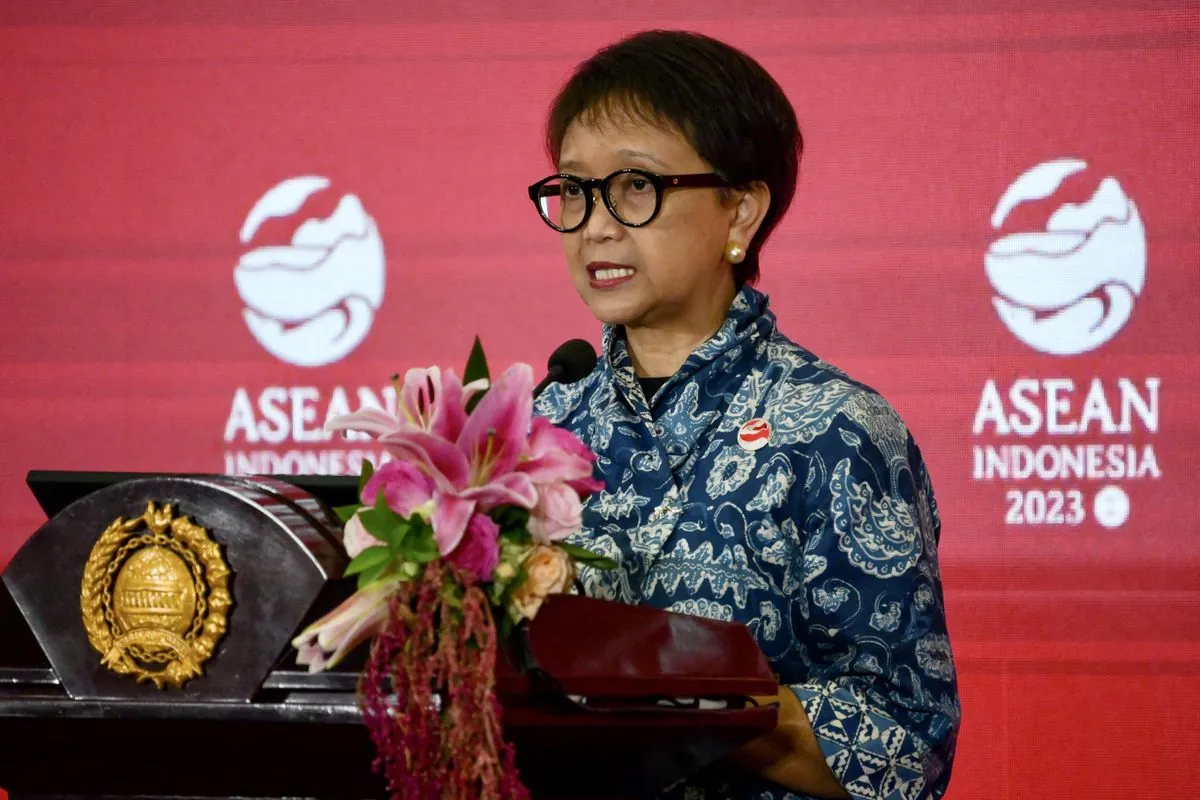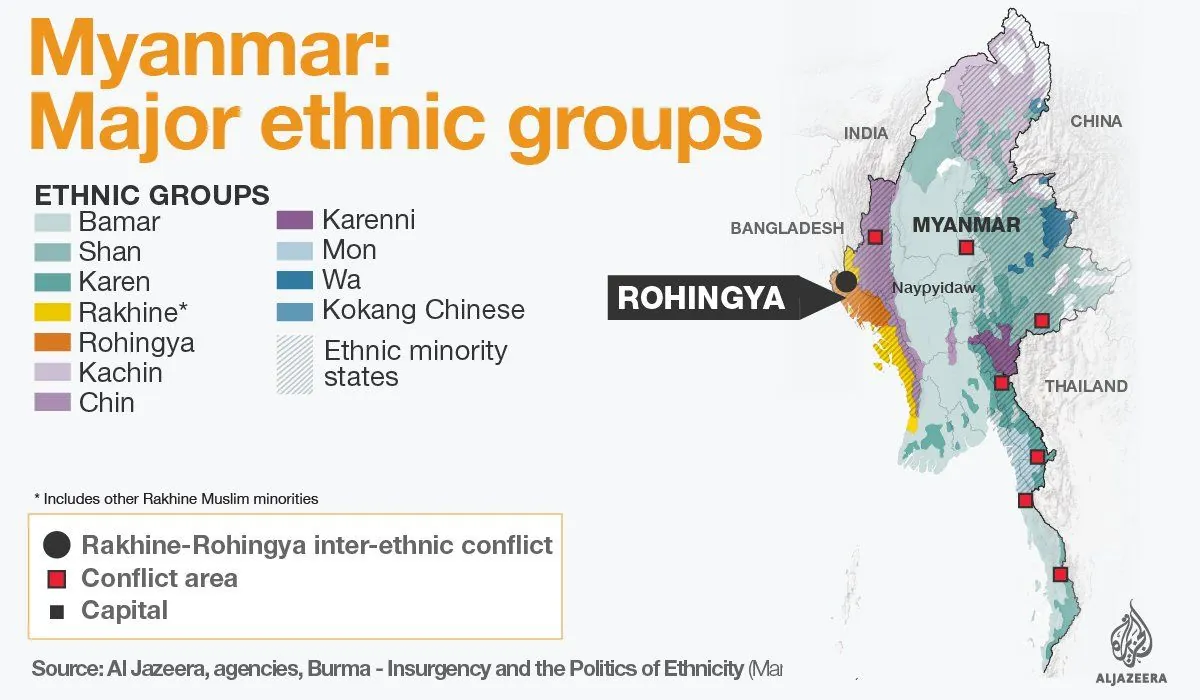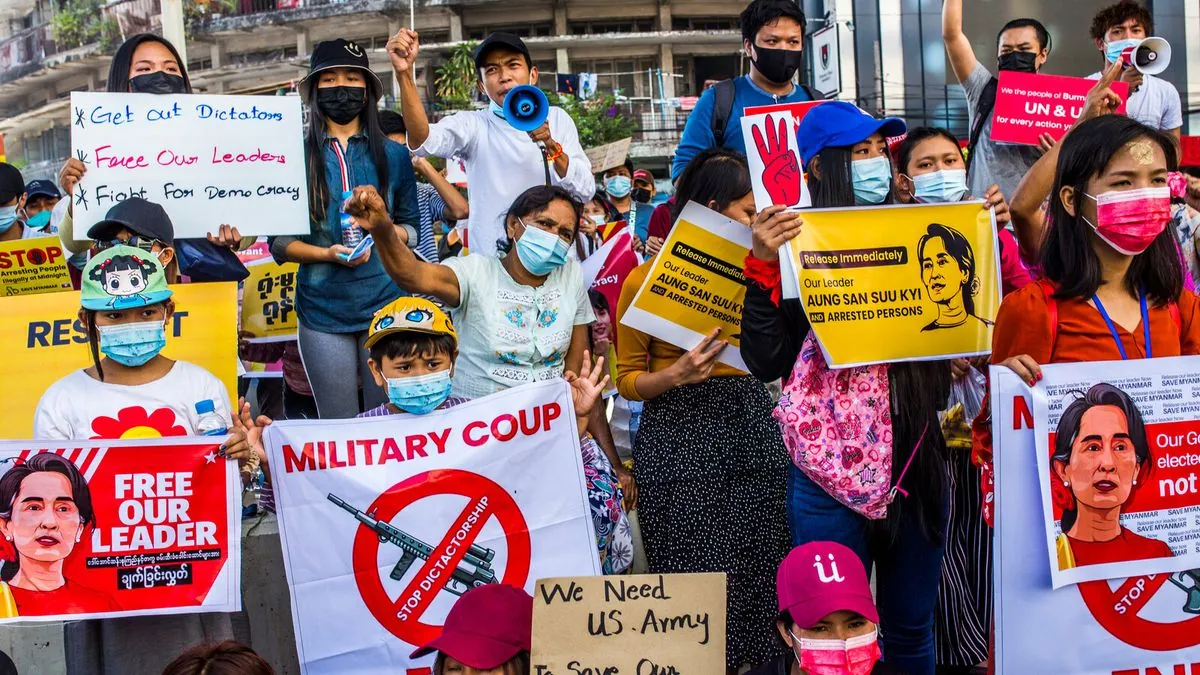Myanmar Crisis: International Talks Seek New Solutions as ASEAN Plan Falters
Indonesia hosts crucial meeting on Myanmar's ongoing civil war, involving UN, EU, and opposition groups. ASEAN's peace plan shows no progress after three years, as junta plans controversial 2025 election.

Indonesia is currently hosting a significant international meeting to address the ongoing crisis in Myanmar, as regional efforts to resolve the conflict have shown little progress. The talks, which involve the United Nations, European Union, and Myanmar's opposition groups, come at a critical juncture, just days before the Association of Southeast Asian Nations (ASEAN) leaders' summit in Laos.
Myanmar has been embroiled in a bloody civil war since the military coup in 2021, which occurred approximately three and a half years ago. This event marked another chapter in the country's tumultuous history, which has seen multiple military coups since gaining independence from British rule in 1948. The current conflict has its roots in the military's crackdown on pro-democracy protests following the coup, leading to a nationwide rebellion supported by various ethnic minority armies.
The ASEAN peace plan, formulated three years ago, has failed to gain traction despite repeated calls for dialogue. This lack of progress has prompted the bloc to consider alternative approaches, including mediation from neighboring countries and organizations outside ASEAN. Myanmar's complex political landscape, with over 135 officially recognized ethnic groups and a history of ethnic conflicts and insurgencies, has contributed to the challenges in finding a resolution.

The military government, known as the Tatmadaw, has refused to engage in talks with its opponents, labeling them as terrorists. This stance has further complicated efforts to find a peaceful solution. The junta's plan to hold an election in 2025, approximately seven months from now, has been met with skepticism and rejection by various opposition groups and international observers.
"We cannot participate in a sham election that legitimizes the military's illegal seizure of power. The people of Myanmar demand a return to democratic rule and justice for the atrocities committed by the junta."
The planned election is unlikely to be recognized by Western countries, as dozens of political parties have been disbanded for not registering to run. This includes the National League for Democracy, led by Aung San Suu Kyi, which was the dominant party before the coup. Suu Kyi, a prominent pro-democracy leader, had previously spent 15 years under house arrest between 1989 and 2010, highlighting the long-standing struggle for democracy in Myanmar.
The international community's involvement in addressing the Myanmar crisis reflects the global concern over the country's situation. Myanmar's strategic location, sharing borders with five countries including China and India, and its rich natural resources make it a significant player in the region. However, the ongoing conflict has severely impacted the country's economy, education system, and press freedom.
As the talks in Indonesia progress, stakeholders are exploring new avenues to support ASEAN's peace plan and find a resolution to the crisis. The outcome of these discussions could have far-reaching implications for Myanmar's future and the stability of the Southeast Asian region.

The international community remains committed to finding a peaceful solution to the Myanmar crisis, recognizing the complex challenges posed by the country's diverse ethnic makeup, history of military rule, and ongoing human rights concerns. As the situation evolves, the world watches closely, hoping for a breakthrough that can bring lasting peace and democracy to Myanmar.


































